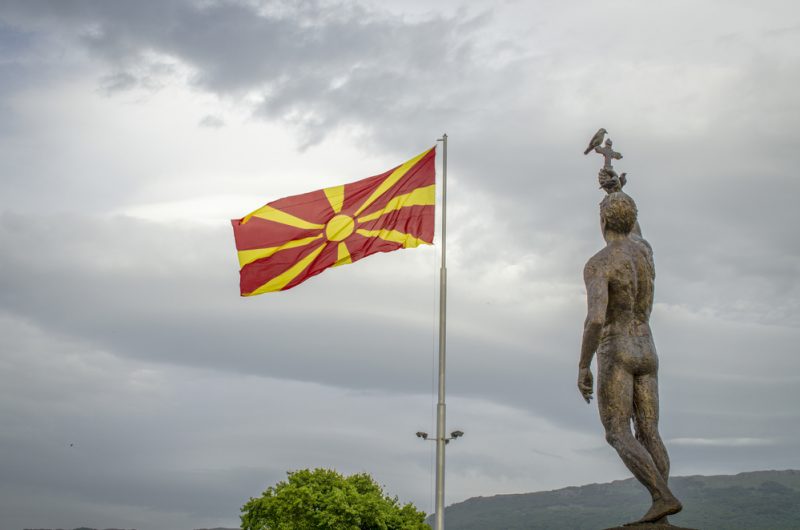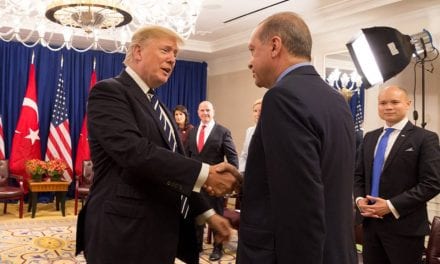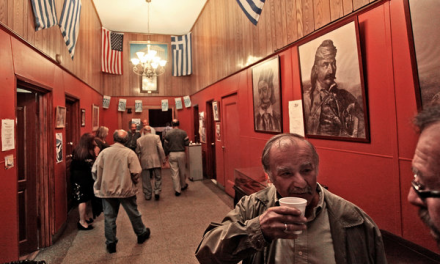 by Andrei Serban, shoutoutuk.org
by Andrei Serban, shoutoutuk.orgAfter decades of political isolation, FYROM’s integration into NATO asks for relations with Bulgaria and Greece to revolutionise. Historical discrepancies within this fragile triangle, oriented towards Macedonia’s national identity, are to modify together with the status quo in the region.
As it has happened before, American intromission could be on its way to producing substantial changes inside one of Europe’s lasting conflicts.
After Macedonia’s and Bulgaria’s leaders recently shook hands in an extraordinary exercise of friendship, public opinion suddenly became interested once more in a forgotten conflict of the Balkan Peninsula.
Why is the Macedonian cultural identity such an explosive element for the region?
With its recent experience of struggling with geopolitical isolation and indifference from the West, the young nation is passing through its biggest political earthquake ever. Like Kosovo back in 1999, this time the U.S. appears to be the uninvited guest after which chaos follows. Zoran Zaev met Bulgaria’s Boiko Borissov in a context where pressure for FYROM (Macedonia) to join NATO and host American military bases gets higher every time. Behind this new ‘treaty of friendship’ though, there is an actual cold conflict hiding.
Before gaining its independence in 1992 after communist Yugoslavia’s dissolution, present-day FYROM had spent the entire twentieth century as a province of the Great Kingdom of Slavs (Serbs,Croats and Slovenes), renamed in 1945 as the Socialist Republic of Yugoslavia. Being a part of ‘Great Serbia’ has not been enough to protect Macedonia from Bulgarian invasions in the East, occurring during both world wars. The Slavic culture and heritage of the two nations offers many similarities between its peoples. In fact, historians generally agree that this may have served as the main reason for Bulgaria considering Macedonia as part of their own country.
It was only in 2012 when Sofia, Bulgaria’s capital, rejected the idea of Macedonia joining the EU based on the attacks and insults towards its culture. Yet contrary to what some Bulgarians or even Macedonians may think, the reality shows that young Macedonia has gained enough support in its great effort for independence and progress.
Some ex-Yugoslav states remain the last ones to be integrated into the Atlantic military family, mainly due to their relatively short time of experiencing peace. Following Albania and the incorporation of Montenegro, which caused a great headache for Russian officials, FYROM is next on Washington’s list. This time, the situation forces Sofia to accept NATO’s plans for their neighbours and consider Macedonians as solid allies for the first time in history.
However, Macedonia’s problem cannot be solved without the last element in the triangle: Macedonians’ dreams of inhabiting a country under the name of ‘Macedonia’ — something that seems to be thwarted by Greece. The position of the Hellenic state rejects any kind of political progress by FYROM until pretensions of becoming ‘Macedonia’ cease. After gaining independence, Greek refusal pushed Macedonia to proclaim FYROM (Former Yugoslav Republic of Macedonia) as its name, temporarily. However, it is Macedonia, a large northern region in Greece bordering FYROM, Bulgaria and Albania, that is the actual reason.
For Athens, another land trying to appropriate the name of Macedonia has been received as an unacceptable offence. Consequently, controversies have formed around Alexander the Great’s origins, claimed both by Greece and Macedonia. It is common among citizens to refer to Greece and Bulgaria’s neighbours as ‘Vardarska Macedonia’, ‘Slavic Macedonia’ or simply ‘Skopje’ (their capital city) rather than Macedonia. If Bulgaria needs to accept Macedonia’s empowered status, sacrifices are likely to be made on both sides of the border. It now looks more probable that Skopje will accept FYROM as their permanent name, in order to open Greek support.
Is this new context a real icebreaker or just another frustrated effort?
Between modern Macedonian borders, ethnic diversity has remained strong. Nearly 70 per cent comprises of ethnic Macedonians, 25 per cent Albanians, as well as the Turks, Serbs and a few Bulgarians and Greeks.
This young state, still developing and recovering from its turbulent past, shares an undeniable historic territory with Greece and Bulgaria: ‘Makedonija’. Efforts to divide this ancient, sunny and prosperous land have generated a triangle of borders which states have failed to manage in a cautious way.
While FYROM might be seen as necessary; a new country with new aspirations. Macedonia is still a cultural treasure and every other approach could, under ordinary circumstances, be seen as a defeat.



















